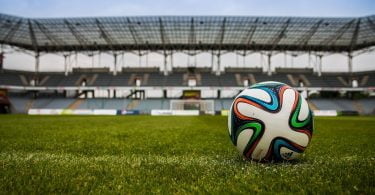As the Group Stage of the 2014 World Cup draws to a close there have already been memories created that will transpire through generations. The standard of
As the Group Stage of the 2014 World Cup draws to a close there have already been memories created that will transpire through generations. The standard of play has generally been quite high (excluding Hodgson’s men) with the entertainment value even higher. One thing that some fans may be concerned about, as they always are, is the standard of refereeing.
It is fair to say referees are always a focus of so much attention, usually centring on the vast minority of poor decisions they make. However, during the early stages of this tournament it has been noticeable that the level of refereeing may be lower than what we are used to in the major European leagues.
Just one example of this is Chilean referee Enrique Osses who took charge of the Italy vs Costa Rica Group D match.
Osses spent large periods of the match standing almost in an offside position behind the Costa Rica defence. This appeared to be a pre-arranged plan, based on the presumption that much of the game would involve Italy attacking the Costa Rica goal.
This pattern of the game did not materialise and Osses was so far up the field he was unable to recover in the 43rd minute when Costa Rica’s Joel Campbell broke towards the Italy goal.
As Campbell reached the 18 yard line he appeared to have been taken off his feet illegally from a forearm shove by Andrea Barzagli.
Osses had been along the Costa Rica defensive line when Italy had the ball and only had the speed to reach the halfway line by the time he had to make a penalty decision. Having to make a decision from over 30 yards certainly wasn’t ideal.
A general change
In the English Premier League, a league often talked about as the fastest in the world, we sometimes accuse referees of being too close to the game.
Referees such as Mark Clattenburg and Michael Oliver have the ability not only to follow the pattern of the game closer than Osses did but sprint so fast to keep up with the game that they have even gone past professional footballers. Perhaps it is time to appreciate English referees more than we do.
The professionalization of the whole refereeing industry is something which could improve the general level of officiating worldwide. English referees, as with players, managers and officials are paid a much better wage than their counterparts on the continent.
Some of the best referees in the world are only part time alongside high ranking city jobs. Felix Brych, Jonas Eriksson and Bjorn Kuipers, regular names in the Champions League, have all had to juggle refereeing duties and important jobs such as bankers, journalists or owners of businesses.
The professionalization of referees could then potentially lead to the transfer of referees between countries. Referees such as the Swede Eriksson that are considered one of the best referees in the world but come from a country where the league is comparatively weak are forced to ply their trade officiating low profile games.
Quality for the better
Eriksson can spend his weekends taking control of a match with only a few thousand spectators and then be thrust in front of millions watching Champions League matches from all over the world.
Financial security and the ability to further them self may lead to the elite referees being interested in moves to the biggest leagues in Europe. Instead of holding referees who have worked unbelievably hard to become the greatest back, this would allow them to referee the matches they deserve to.
There may be a call that this would be something else that took the English football away from its English base but the Barclays Premier League is a worldwide brand and business that wants to create the best product possible.
This would benefit refereeing standards at major tournaments too as the best referees would be used to the intensity and demands of football at the highest level as they cover it weekly.
Football is an entertainment business and referees are crucial to the entertainment the viewer receives. They work hard to be treated as equals with many of the people that create great footballing events. Referees are an asset to any tournament and organisation and it is hard for any tournament to gain the respect of the world without quality officiating.
What do you think? Have your say in the comments section below.








